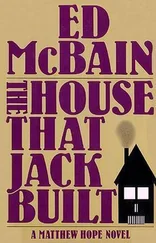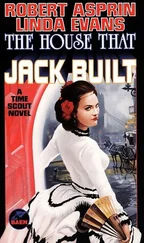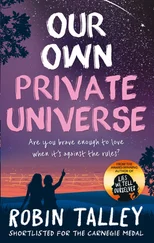O. Douglas - The House That is Our Own
Здесь есть возможность читать онлайн «O. Douglas - The House That is Our Own» — ознакомительный отрывок электронной книги совершенно бесплатно, а после прочтения отрывка купить полную версию. В некоторых случаях можно слушать аудио, скачать через торрент в формате fb2 и присутствует краткое содержание. Жанр: unrecognised, на английском языке. Описание произведения, (предисловие) а так же отзывы посетителей доступны на портале библиотеки ЛибКат.
- Название:The House That is Our Own
- Автор:
- Жанр:
- Год:неизвестен
- ISBN:нет данных
- Рейтинг книги:3 / 5. Голосов: 1
-
Избранное:Добавить в избранное
- Отзывы:
-
Ваша оценка:
- 60
- 1
- 2
- 3
- 4
- 5
The House That is Our Own: краткое содержание, описание и аннотация
Предлагаем к чтению аннотацию, описание, краткое содержание или предисловие (зависит от того, что написал сам автор книги «The House That is Our Own»). Если вы не нашли необходимую информацию о книге — напишите в комментариях, мы постараемся отыскать её.
The House That is Our Own — читать онлайн ознакомительный отрывок
Ниже представлен текст книги, разбитый по страницам. Система сохранения места последней прочитанной страницы, позволяет с удобством читать онлайн бесплатно книгу «The House That is Our Own», без необходимости каждый раз заново искать на чём Вы остановились. Поставьте закладку, и сможете в любой момент перейти на страницу, на которой закончили чтение.
Интервал:
Закладка:
Kitty had shrugged her shoulders in resignation over her own room, and made no attempt to improve it. What, she asked, could be done with a jazz carpet, in shades ranging from brown to orange, ugly fumed-oak furniture, depressed cretonne curtains and covers, and an outlook on a court? Even flowers, she said, were out of place in such a room.
But now, Isobel thought, it looked as if she were rousing herself from the apathy that had held her for months, as if she might now take a grasp of things and remake her life.
“Here’s to-day’s Times ,” said Kitty. “Let’s see what the house-agents have to say—‘A House of Unique Character, a Gilt-edged Investment.’ That’s not the sort of thing. ‘Something entirely new in Luxury Service Flats.’ ‘Flats with a Difference.’ They all sound rather prohibitive, don’t they? But there’s no harm in going to see them. You’re sure you don’t mind, Isobel? There may just chance to be something about my price. Which reminds me, I must go and see my lawyer and find out how things stand with me. Not that I understand in the least what he tells me. Are you a business woman, Isobel?”
Isobel laughed. “I don’t need to be—much. It’s all perfectly plain sailing with me. I’ve a certain amount of capital, invested in the very safest sort of things, which brings me in a little more than £700 a year, and I let it alone, and never attempt to make it any larger. Aunt Constance’s income came mostly from annuities. After the servants’ legacies had been paid, there was about £2,000 left for me. I’m keeping that as a sort of nest-egg, in case I should ever want to do something adventurous, like going round the world. I like to feel it’s there, though I may never use it.”
“But, my dear girl,” Kitty protested, “why d’you talk as if you were three-score and ten? You’re only a girl. You will marry.”
“I may,” said Isobel calmly, “but I don’t think so somehow. It’s not that I wouldn’t like to marry, but only that so far I’ve seen no-one I could care for in that way, and I’d very much rather live my life alone than take the second best. But I’m not really preoccupied with the subject. And I’m fed to the teeth with all the sex-talk in books and plays. Wodehouse and the crime-mongers are about the only writers free of it.”
“Not quite,” said Kitty. “I could name at least a dozen—oh, many more than that—whose books never descend. Of course, it’s absurd to object to frankness, but like you, I hate this slavering over sex; you’d think it was the most important thing in life! I don’t think you’d be easy to please, but I do earnestly hope that the right man will come along, for I hate waste.” She laid her hand on Isobel’s. “My dear, the only thing I regret in leaving this place is leaving you. I’m only now beginning to realise what I owe to you. You came and went so unobtrusively I hardly noticed you; I only knew that when you were there you seemed to warm and lighten the atmosphere.”
“You owe me nothing,” Isobel broke in. “All the other way. You gave me another interest in life. Now do stop bouncing on that poor bed. I can see that the hotel management will have to supply a new mattress for the next occupant of this room! The rain is gone, and your penny whistle man has gone too, to get a drink, probably with your money. The sun’s coming out. What about going now to an agent and getting a list of houses? There’s nothing like taking time by the fetlock, as Aunt Constance always put it. And if you would be so kind as to come and see me fitted for my new coat and skirt I’d be grateful. It’s such a help to have a friend to back one if any alteration is needed. I’m so easily spoken down.”
Isobel, as she spoke, brought out from Kitty’s wardrobe a coat, a fox fur, a hat, and gloves.
“Thank you, kind Nannie,” responded Kitty. “How do you suppose I’m going to stand on my own feet in a cold and draughty world after being made a pet of by you for months?”
“Oh, that’s going to cease,” Isobel told her. “You don’t need me any longer, I know, but I haven’t yet got out of the habit of looking after you. I shan’t be a minute getting ready.”
CHAPTER II
Table of Contents
Merely to be alive is adventure enough in a world like
this, so erratic and disjointed, so lovely and so odd,
and mysterious and profound. It is, at any rate, a
pity to remain in it half-dead.
Walter de la Mare
A week later the two friends sat together in Isobel’s room. Spring had made appreciable progress in the week; the crocuses were all aglow in the gardens opposite, the buds on the lilac bushes were swelling, the birds busy with their nests.
Kitty’s plans had also made some progress.
“It’s been a most agitating week,” she was saying. “If I look as battered as I feel I must be rather a sight. Who’d have thought it was such a difficult business to find a house to let.”
“It’s the ‘to let’ that’s the difficulty,” said Isobel, who was sitting with her work-basket beside her, placidly mending. “Everything is for sale, and you don’t want to buy.”
“I don’t indeed. Even if I could afford to, what’d be the use of buying? It’s different for people with children—and even they wouldn’t buy a flat. What places we’ve seen! Are there really people who would live in a basement, always in artificial light, and be willing to pay £150 a year for the privilege? And these terrible new blocks like penitentiaries, with every new gadget, I grant you, but mere boxes! Personally I don’t know any cat-slingers, but if any exist they couldn’t indulge their hobby in these mansions. There’s no room for a pet; even a canary would feel itself de trop .”
“What about the one in Westminster?” Isobel asked. “It had quite good rooms.”
“But only two of them—one good living-room, one bed-room, an excellent bathroom, and a cupboard of a kitchen. It would mean never having a friend to stay, and, worse than that, no resident maid. Besides, I don’t like to eat in the room I sit in. What I’d like in Westminster would be one of those little old houses, but they again have basement kitchens, and, anyway, are seldom to be let. No, the only thing I can see myself in is that flat in Sloane Street, and it’s too expensive.”
“Have you thought it over carefully, and calculated what it would cost to run?” Isobel asked, looking with satisfaction at the eager face opposite to her, and thinking how beneficial a week of house-hunting had proved.
Kitty rescued a reel of silk and returned it to the work-basket.
“Yes,” she said, “I have, and I’m afraid I daren’t attempt it. My old nurse used to say of people who had too large and expensive a house, ‘I doubt it’ll burn them, not warm them,’ and there’s a lot of truth in the saying. Of course, in a flat you know more or less where you are. The rent covers everything in the way of taxes and, generally, central heating and constant hot water.”
Isobel nodded. “Compared with other flats we saw, I thought the Sloane Street one very reasonable. I liked the whole look of it. There was something so old-fashioned and settled-looking about everything, the entrance, the staircase, the lift. I am sure the people in the other flats are everything that is quiet and respectable. You wouldn’t like neighbours who entertained till all hours. And the rooms are large and airy—I expect your furniture would look just right in them—and the neighbourhood is so pleasant.”
“Temptress!” said Kitty. “You know quite well I’m simply longing to get that flat.”
“Well, go to your lawyer and lay it before him. He should know just what you can afford. Go this very morning. The flat may be snapped up any minute. If you like I’ll meet you somewhere for lunch, and we might look at some other places, supposing Mr. Johnson turns down your flat. But I don’t believe he will. I’ve a feeling in my bones that you were meant to live there.”
Читать дальшеИнтервал:
Закладка:
Похожие книги на «The House That is Our Own»
Представляем Вашему вниманию похожие книги на «The House That is Our Own» списком для выбора. Мы отобрали схожую по названию и смыслу литературу в надежде предоставить читателям больше вариантов отыскать новые, интересные, ещё непрочитанные произведения.
Обсуждение, отзывы о книге «The House That is Our Own» и просто собственные мнения читателей. Оставьте ваши комментарии, напишите, что Вы думаете о произведении, его смысле или главных героях. Укажите что конкретно понравилось, а что нет, и почему Вы так считаете.




![Альфред Ван Вогт - Вечный дом / The House that Stood Still [= А дом стоит себе спокойно…; Обитель вечности]](/books/276568/alfred-van-vogt-vechnyj-dom-the-house-that-stood-thumb.webp)







